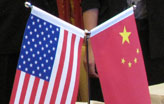Economy
Nations clamp down on resources
Updated: 2011-07-21 10:32
By Krittivas Mukherjee (China Daily)
As the world economy recovers, the battle for commodities will intensify
NEW DELHI - Countries from India and Indonesia to Russia are tightening their grip on natural resources as they limit exports to build up domestic industry in a trend that will spawn many challenges to World Trade Organization (WTO) rules.
Export barriers are tightening on commodities ranging from food and coal to iron ore and rare earths, which have critical roles in high-tech devices, as countries harden positions on what they see as a sovereign right to development.
The WTO ruled this month that China broke trade laws when it curbed exports of coveted raw materials, a verdict that seemed to cast a doubt over nations' right to control and use raw materials on their soil.
Between October and April, at least 30 new export curbs were imposed by countries such as China, India and Vietnam, up from 25 slapped on during the previous 12 months, the WTO said in a report in June.
"Every country is trying to conserve its resources," R N Patra, head of India's state-run rare earths company, IREL, told Reuters. "It is their right how they want to use them."
Indonesia had raised the floor price of coal, Australia had a levy on a minimum price, and even the United States had restrictions on the export of 10 elements, Patra added.
"This did not exist a few years ago. But in the future there will be greater competition for resources."
As the world economy recovers from its slowdown, that battle for resources will only intensify, analysts said, although, for now, many producing countries need the income from exports to plug large fiscal deficits.
Export curbs run the gamut from taxes to restrictive quotas and outright bans.
For example, India has a 20 percent export tax on iron ore and controls grain exports; Indonesia's curbs include giving priority to domestic demand for gas and coal and export taxes on cocoa and palm, while Mongolia, a potential source of rare earths, is talking about an export tax on ores.
Increased export curbs by developing countries stem from short-term protectionist motives rather than long-term industrial policy, said Razeen Sally, director of the European Centre for International Political Economy, a think-tank based in Brussels.
"The WTO dispute opens a larger debate on the changing dynamics of global trade in which developing countries, like India, are slowly looking at moving away from the model of exporting raw materials to the developed world to produce value-added products," said T S Vishwanath, an adviser with APJ-SLG Law Offices, a firm specializing in trade issues. Conserving resources could give downstream producers just the edge they need to stay ahead of the curve in fiercely competitive international markets. Natural resources are vital for the industrial development of Asia's fast-developing economies, for now, many Asian nations are primarily concerned with food security at a time of potentially acute, destabilizing inflation and fluctuating supply and demand, Simpendorfer said.
In the developing world, where land has traditionally been the only source of livelihood for hundreds of millions of indigenous people, forest and mountain dwellers and farmers, conserving natural resources is an explosive political issue. Rising industrial activities fuel the demand for land, feeding conflict between firms and vast populations living in the countryside who form the core support base of governments.
Such protests scatter across the developing world from Brazil to Indonesia, and governments have damped the unrest with the strategy of getting investors to devote some of their income to the development of local communities. India is framing a law to force private miners to share profits or make royalty payments, so generating funds to aid local communities' development .
Reuters

Specials

Yao Ming retires
At just one-year old, Yao Qinlei will never get to see her famous father Yao Ming play on court.

China-US Governors Forum
The first China-US Governors Forum is held July 15 in the Salt Lake City, the United States.

My China story
Foreign readers are invited to share your China stories.